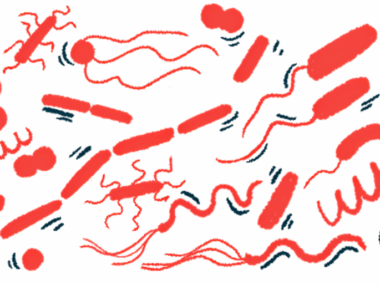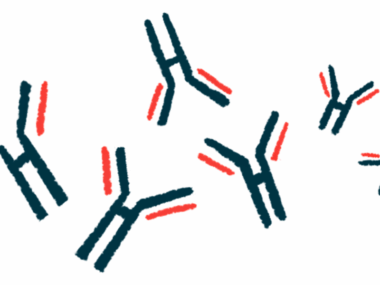Parkinson’s therapy slows alpha-synuclein spread in mice: Data
Nitrase's NDC-0524 reduces aggregation, preclinical data show
Written by |

Nitrase Therapeutics’ NDC-0524, an antibody therapy for Parkinson’s disease, significantly reduced alpha-synuclein aggregation and spreading in mouse models of the disease, according to preclinical data released by the company.
The antibody targets nitrated alpha-synuclein, a misfolded form of the protein that forms toxic clumps in dopaminergic neurons, the nerve cells lost in Parkinson’s disease. Nitrase said the preclinical findings suggest NDC-0524 may slow symptom progression in people with the disease.
“These data demonstrate that our antibody neutralizes secreted, nitrated synuclein, helping to prevent the spread of Parkinson’s pathology from diseased neurons to healthy ones,” Irene Griswold-Prenner, PhD, Nitrase’s CEO, said in a company press release. “These promising findings were highly consistent across multiple, separately conducted in vivo studies and for different regions of the brain.”
A first-in-human Phase 1/2a trial enrolling healthy volunteers and people with Parkinson’s is expected to start later this year. The study will evaluate NDC-0524’s safety, tolerability, and pharmacological properties, biomarkers reflecting the antibody’s ability to engage nitrated alpha-synuclein, as well as its ability to trigger an immune response.
The results were covered in an oral presentation titled, “Preclinical Efficacy and Development of an Anti-Nitrated Alpha Synuclein Antibody for the Treatment of Parkinson’s Disease,” at the Alzheimer’s Disease and Parkinson’s Disease conference, which took place April 1-5 in Vienna.
Misfolded protein prone to clumping in brain
In Parkinson’s disease, the loss of dopamine-producing neurons is linked to the buildup of toxic clumps of misfolded alpha-synuclein protein, known as Lewy bodies. These clumps can spread through the brain and contribute to the progression of Parkinson’s motor symptoms.
Lewy bodies are rich in nitrated alpha-synuclein, which consists of the introduction of a chemical group called nitro that changes how the protein functions or where it is located in cells. Nitrated alpha-synuclein may be less soluble than other forms of the protein, making it more likely to clump.
“The presence of aggregated nitrated alpha-synuclein in the neurons of [Parkinson’s] patients has been well-illustrated by many in the neurodegeneration field, and it has also been previously shown to induce dopaminergic neuronal death and motor deficits in mice,” Griswold-Prenner said.
NDC-0524 is a monoclonal antibody that selectivity binds the nitrated form of alpha-synuclein. The treatment aims to reduce the buildup of harmful protein clumps and potentially slow disease progression by reducing “cell-to-cell disease transmission,” the company said.
In preclinical models of Parkinson’s that recapitulate alpha-synuclein clumping and spreading, the antibody significantly reduced the protein aggregates by as much as 88%, Nitrase said.
Data showed the treatment outperformed prasinezumab, an investigational antibody that primarily binds normal/non-nitrated alpha-synuclein, by 31% at an equivalent dose, although the difference was not statistically significant. The results were consistent across several mouse models evaluating different brain regions, supporting the role of nitrated alpha-synuclein and NDC-0524’s potential as a possible Parkinson’s treatment.
In addition to NDC-0524, the company is developing small molecules designed to inhibit GLOD4, an enzyme with synuclein nitrase activity that’s responsible for alpha-synuclein nitration. Blocking GLOD4 activity may prevent the formation of alpha-synuclein toxic clumps, according to the company.


